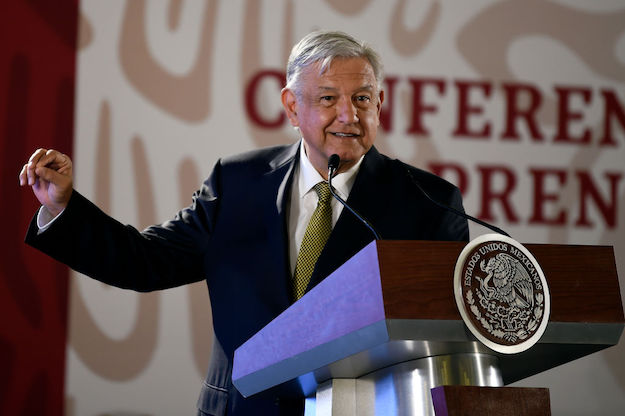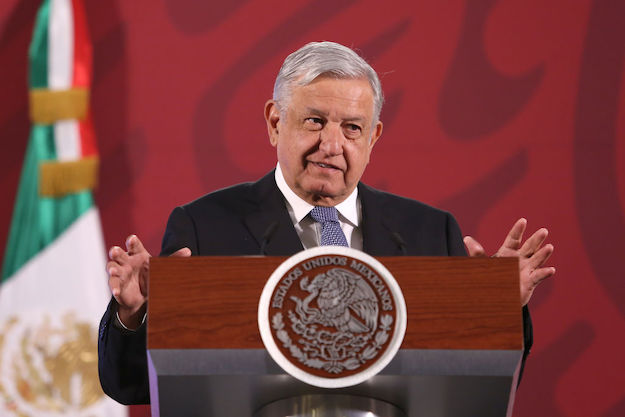Across generations, Mexicans have been raised believing that oil is one of Earth’s blessings to the country. We grew up learning about the great advantages of having oil and thinking about the ways in which we would distribute all the riches that came with it to make Mexico a more equal country. It is therefore not surprising that many Mexicans have an emotional attachment to crude, a neural connection that links oil to nationality, pride and sovereignty.
But despite having large reserves and being counted among the world’s top oil producers, Mexico does not refine enough to satisfy its domestic demand for gasoline. The country currently imports around 75 percent of the gasoline it consumes. From an economic perspective this isn’t much of a problem, assuming the terms of exchange make it reasonable for Mexico to import, rather than produce.
At present, there are six refineries in operation in Mexico: Cadereyta, Madero, Minatitlán, Salamanca, Salina Cruz and Tula. None of them works at full capacity, on average operating at 36 percent of their potential. There are many possible causes for this, but the biggest is a lack of investment and proper maintenance that goes back many years.
Indeed, the oil industry in Mexico faces many challenges. Pemex, the state-owned oil company, is in need of infrastructure investment and dealing with serious financial issues – but those aren’t its only problems. Lack of competition and rampant corruption have been a trademark and a burden for years.
Enter Mexico’s President Andrés Manuel López Obrador. AMLO, as he is widely known, built a successful campaign in last year’s election primarily on the idea that he would tackle corruption. He stressed that he would appoint honest people to manage Pemex, because in his view corruption is solved from the top down. When his campaign began, AMLO said he would invest in Mexico’s existing refineries and build six new ones. He’s so far stuck by the first part of his plan, but the promise of six new refineries then turned into one: Dos Bocas.
Dos Bocas is the refinery that AMLO’s government is now planning to build in Tabasco, his home state. So far the government has offered few specifics on its construction to the public. What we do know is that AMLO wants it built for a maximum of $8 billion and to have it finished in no more than three years.
The current budget includes two items related to the refinery, but the resources allotted leave questions as to how the government is planning to fully finance it. The administration says it will initially assign 25 billion pesos (around $1.3 billion) to the project, and allocate additional resources recovered from tackling fuel theft to its construction.
The economic uncertainty surrounding the project is apparent. Earlier this month, the Financial Times published an interview with Mexico’s undersecretary for finance, Arturo Herrera, in which he said that construction might be postponed due to costs. Analysts and markets reacted positively to this announcement, only to be disappointed a couple of hours later when the president, in his morning address, confirmed that the refinery was a go and that the bidding process would soon commence.
And so it did. A couple of days later, Energy Secretary Rocío Nahle announced that instead of opening the project to a public tender, the government would invite four companies and consortiums to bid to build the refinery. Nahle justified the invitation by saying that these companies were the best in their field and had the best practices regarding transparency and ethics. But as soon as the names were released, observers noted that four of the parties involved had been implicated in recent corruption scandals.
The overall result is an energy policy requiring serious scrutiny. Investing in a new refinery when importing gasoline is cheaper than refining it seems not to be a sensible choice. Pemex also stands to lose important revenue from oil that it would have sent to export, but that will be destined for Dos Bocas after its construction.
The company is already facing huge financial constraints. Setting aside questions about transparency in the bidding and construction processes themselves, spending billions on a new refinery will only put the company under more pressure. And even as the Dos Bocas drama unfolds, the administration has suspended a tender for renewable energy projects. In a world that is moving towards green energy, allocating vast resources to a refinery project that is not certain to help the country seems out of touch.
The administration now says its long-term energy plan includes the construction of two more refineries in addition to Dos Bocas. AMLO has gone from promising six new refineries, to one, to three. Dos Bocas may already be too much.
—
Moy is a professor of economics and the director of policy think tank México, ¿cómo vamos? She is also a member of AQ editorial board.







